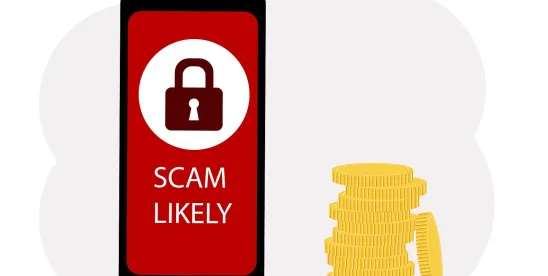For a company calling itself “Live Free” and operating out of ruby-red Idaho, being hauled into court in blue Massachusetts must really suck.
But that’s exactly what is happening and the Court refused to dismiss the case yesterday in Traylor v. LiveFree Emergency Response, 2024 WL 4943042 (D. Mass. Dec. 3, 2024.)
Pretty standard story here actually.
The Plaintiff allegedly received unwanted robocalls from a marketer. The marketer– Q Synergy, LLC–was allegedly selling the product of Live Free and the plaintiff pretended to be interested in the product to get transferred to the lead buyer. Then the Plaintiff sues both the caller and the lead buyer under the TCPA.
In Traylor the lead buyer Live Free moved to dismiss the case arguing the Court could not exercise jurisdiction over it because it did not engage in any conduct directed at MA.
But the court correctly found a compay can be held to account for the acts of its agents, even in a far away jurisdiction.
It then determined Q Synergy was sufficiently alleged to be acting as Live Free’s agent–a critical ruling for lead buyers to understand.
Here was the crux of the court’s ruling on that piece:
The evidence that militates in favor of an agency relationship is: (1) the product marketed to Traylor by Q Synergy was produced and shipped by LiveFree; (2) on one call from Q Synergy, Traylor was provided a number which connected him to a LiveFree dealer support agent; (3) when Traylor purchased the LifeBeacon monitor, LiveFree both charged him for and mailed him the device; (4) the package with the device sent to Traylor had Q Synergy’s name, but LiveFree’s address, as the return address; and (5) Q Synergy’s “purchase” of products did not occur until the sale was made to customers. The court finds these facts sufficient to support an agency relationship for purposes of the jurisdictional inquiry
Pause.
What the court just described is literally the way every warm transfer works. A lead generator gets someone on the line. Pitches a product. Then transfers to a company that can sell that product. That’s the essence of lead generation– and NO the lead generator is not working for the product seller, they’re just finding people interested in stuff and then connecting those people with companies that can sell the stuff.
Courts struggle with this concept, however, as it is simply not intuitive. They assume a caller that transfers a call to a product seller must have been making that call for the seller. Sometimes that is true–like in an exclusive campaign–but very often that’s not even close. And the mere fact that a call resulted in the sell of a product does not mean the original call was placed to sell that product.
Regardless the court continues its analysis:
LiveFree contends that because it does not outsource its marketing efforts to Dealers and expressly prohibits its Dealers from representing that they are calling on behalf of LiveFree or LifeBeacon, Q Synergy cannot be its agent. See Chandler Decl. ¶¶ 4, 7-10, 12-13, 30-35 [Doc. No. 30]. But the facts pled here—which LiveFree does not directly contest—are that Traylor was provided a number for a LiveFree dealer support agent via a call from Q Synergy and that a product purchased on a call from Q Synergy was charged by LiveFree, sent by LiveFree, and meant to be returned to LiveFree, if necessary. LiveFree cannot sidestep the question of whether Q Synergy was its agent by merely insisting that Q Synergy was prohibited from revealing the nature of its relationship with LiveFree.
Eesh.
So LiveFree banned Q Synergy from saying it worked on its behalf–probably because it didn’t–but the Court viewed that claim as some sort of conspiracy that LiveFree was trying to hide things from consumers. Not good.
Anyway yet another reminder that buying third-party leads is dangerous–PARTICULARLY WARM TRANSFERS. Courts will often assume an agency relationship from the mere fact a transfer was allowed–and if the calling party used robocalls/prerecorded/AI voice messages, it can cause a world of hurt.




 />i
/>i

